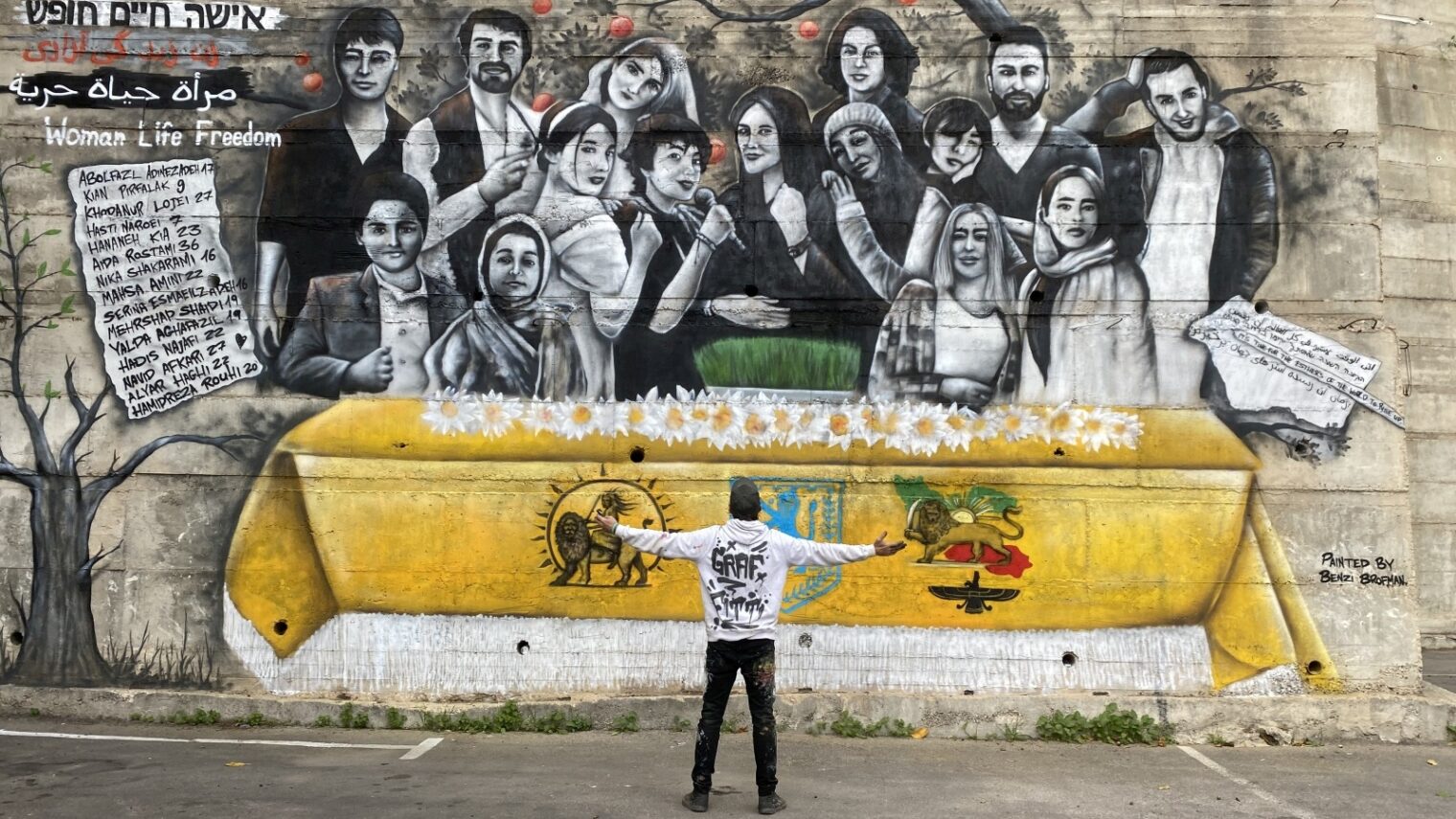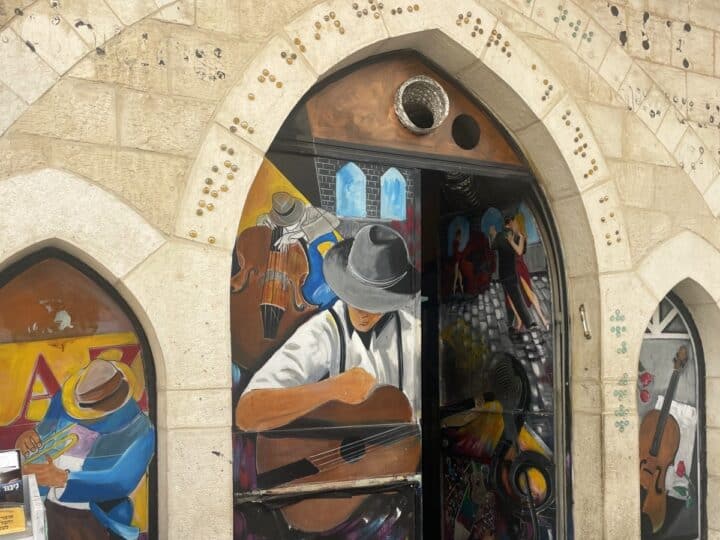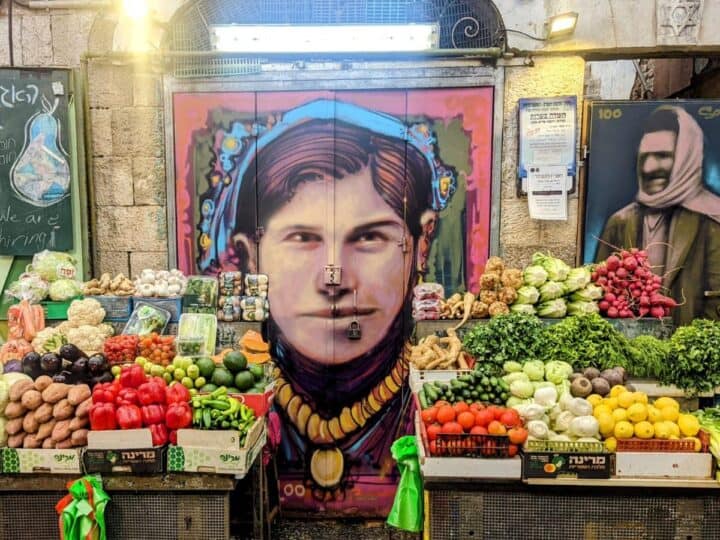“It kind of reminds me of how things were with tattoos. In the past, whoever had a tattoo was categorized as a certain type of person. It was the same with graffiti. But nowadays it’s not like that anymore, it’s turned into a loved and accepted form of street art. I mean, people actually go on graffiti tours,” says Benzi Brofman.
And when they do, there’s a good chance that they’ll come across one of his works, whether in Israel, London, Amsterdam or elsewhere in the world.
The 39-year-old artist from Migdal HaEmek in northern Israel has been interested in art for as long as he can remember.
“When I first saw a can of spray [paint], it made me feel really passionate to touch it, see how the color comes out. That was around the age of 13 or 14,” Brofman tells ISRAEL21c.

“Like a lot of people, the whole thing with spray comes and goes, because entering the world of spray requires a lot of perseverance. You need to really understand this world both on a technical and a visual level. After all, it’s not painting on A4-sized paper, but on huge walls and buildings,” he says.
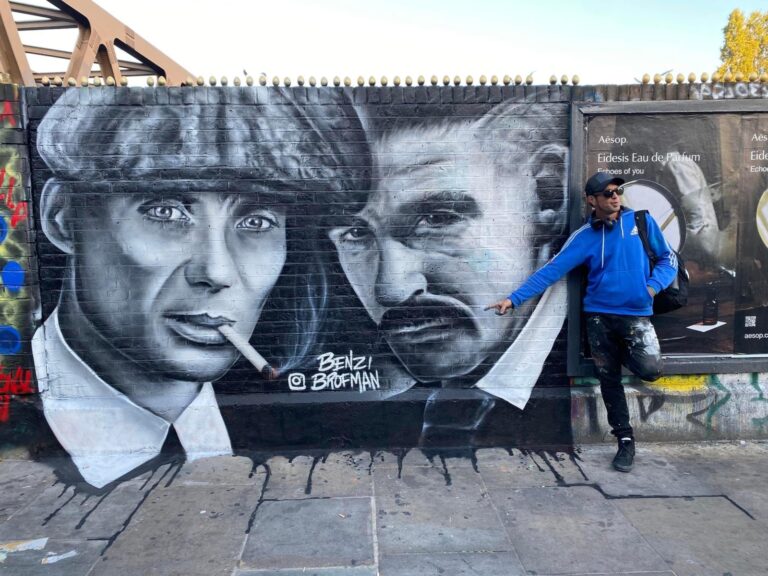
“At some point, I neglected the spray and moved on to other materials, but when you’re passionate about something it happens, so I ended up returning to spray. For me, spray is an integral part of my hand, painting on walls is an integral part of my soul, and it’s absolutely my place in the art world.”
They ask questions
Brofman not only does graffiti walls in cities around the world, but he also creates wall art for restaurants, high-tech offices and municipalities, runs graffiti parties for kids and workshops for corporations, and gives lectures on graffiti.
“I never studied painting in any kind of framework. More than that – no frameworks ever accepted me as an artist. That is a very big part of my process,” Brofman confides.
“But nowadays, I can see a five-year-old excited about my work and an 85-year-old excited and interested in my work. It appeals to all sorts of people, both in Israel and abroad.”
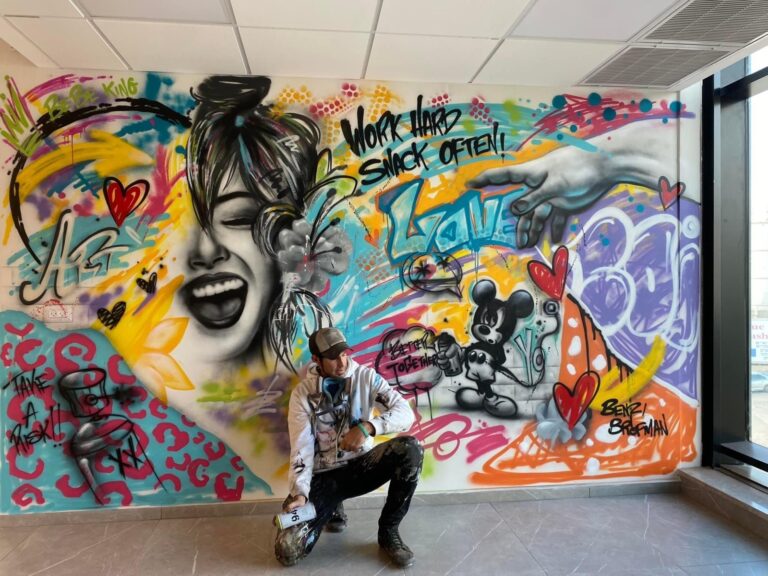
“I feel that I’m doing something that really, really interests people. When I’m painting here or abroad, people stop. They stop, speak with me, take photos, ask questions,” he says.
“I don’t only do a wall painting that’s visually interesting or cool for a photo on Instagram. I also create communication. If I were to stand in the middle of the street and just lean on a wall, no one would stop to speak with me. But when I ‘lean’ on the wall and paint a painting, people don’t just walk past, they stop and speak and also get something from me.”
Faces and brain muscles
Recently, Brofman did a wall in cooperation with an Iranian-American artist in the Israeli Arab city of Nazareth.
“I painted a wall 8 meters tall and 12 meters wide of 15 people from Iran – children, women and men who were murdered in Iran, probably by the government. We did a very, very moving painting to express our support of people’s freedom and women’s freedom.”
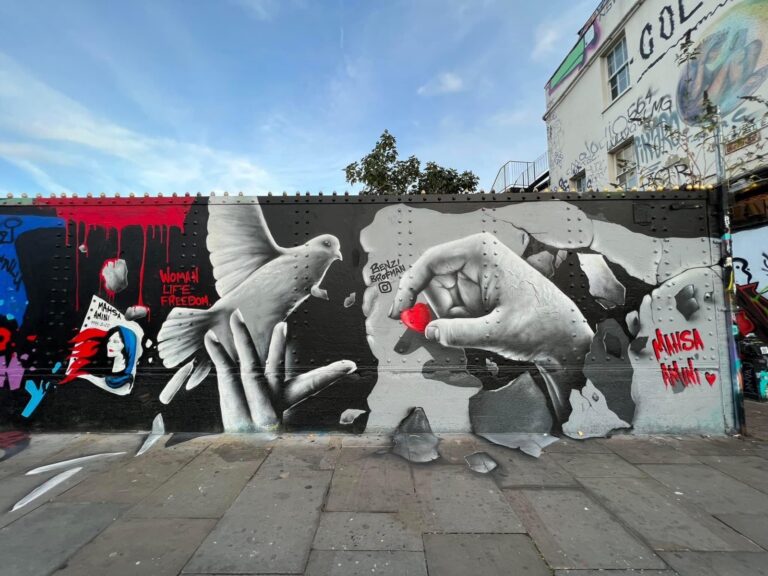
Brofman’s favorite style, he says, is portraits – realist, black-and-white portraits with a colorful background or some accompanying texts.
“I really love faces,” he says. “I love the communication between the character and the person looking at it, and I love that people love it. It’s a lot of fun.”
The challenges he encounters, he says, have more to do with speedy creative thinking than with issues of legality.
“I don’t do vandalism. I don’t go out to paint at night – at night I sleep,” he notes. “I don’t have issues of is it legal, is it illegal, whether or not I’ll be caught and the like.
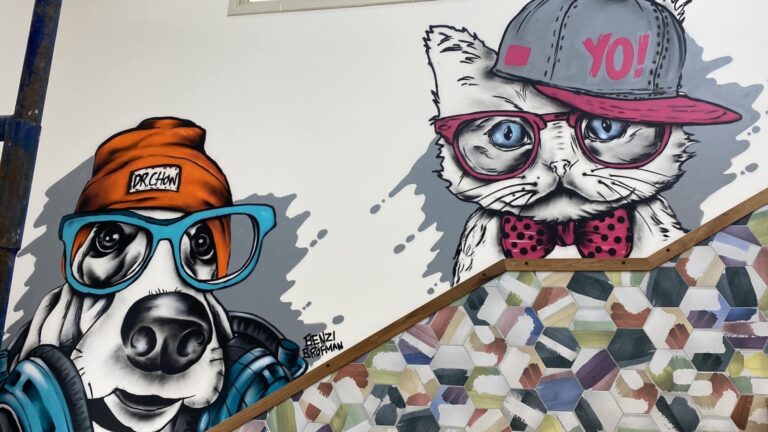
“But when it’s your career, it’s not easy work. It requires a lot of patience and a lot of attention problems,” he jokes.
“Let’s say I’m now working on a restaurant that does pizza, and my head is occupied with pizza, and Italy, and things like that, and a moment later I’m doing a birthday party for 40 eight-year-old kids and then the following day something completely different. It requires some very serious brain muscles.”
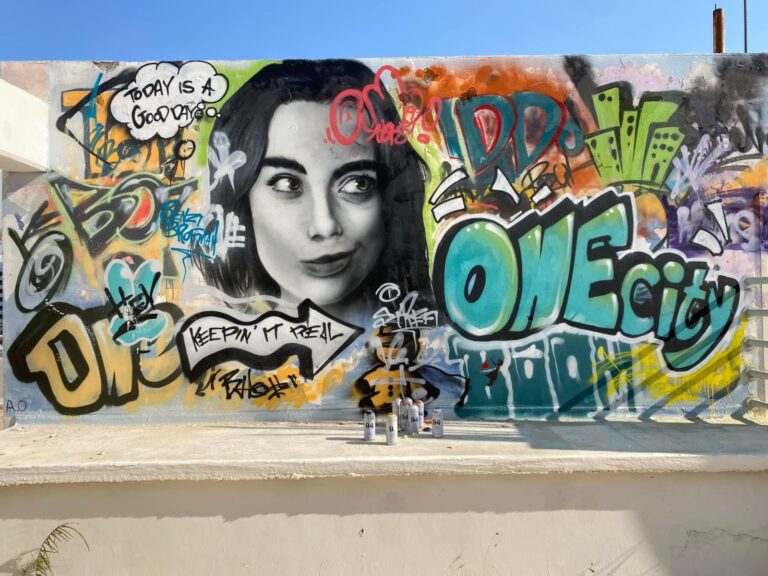
Someday, Brofman would love to paint a wall in the home of soccer star Leo Messi, whom he greatly admires.
Above all, he’d like to inspire teens and “people who missed opportunities in life or gave up on them. I’d like to do important, interesting and influential projects.”
For more information, click here.




